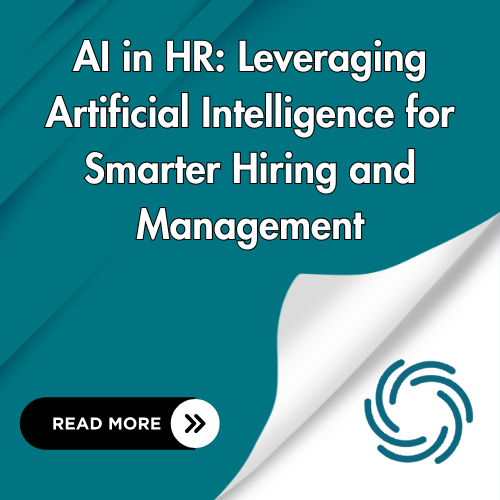HR Tech Trends: Innovations Reshaping the Future of Human Resources
- alexis3900
- Apr 30, 2024
- 2 min read
Updated: Dec 26, 2024
In the constantly evolving landscape of Human Resources, technology has become an integral driver of change, revolutionizing traditional HR practices and shaping the future of the industry. As businesses seek efficiency, agility, and data-driven decision-making, several HR tech trends are reshaping the way organizations manage their workforce.
1. Artificial Intelligence (AI) and Machine Learning
AI and machine learning technologies are revolutionizing HR processes. These tools streamline recruitment by automating candidate screening, enhancing employee engagement through personalized experiences, and even predicting workforce trends by analyzing vast amounts of data.
2. Data Analytics for Decision Making
Data analytics tools provide HR leaders with actionable insights. They enable data-driven decision-making, offering valuable information about employee performance, engagement, and potential areas for improvement.
3. Remote Work Tools and Platforms
The rise of remote work has spurred the development of collaborative tools and platforms. From virtual communication tools to project management platforms, these technologies facilitate seamless remote work environments and enhance team productivity.
4. Employee Experience Platforms
Employee experience platforms are designed to improve overall employee engagement and satisfaction. These platforms offer personalized experiences, feedback mechanisms, and tools that enable HR to measure and enhance the employee journey.
5. Automation and Robotic Process Automation (RPA)
Automation and RPA technologies streamline repetitive HR tasks, such as payroll processing, onboarding procedures, and administrative tasks. This frees HR professionals to focus on strategic initiatives and employee-centric activities.
6. Virtual Reality (VR) and Augmented Reality (AR) for Training
VR and AR are transforming employee training and development. They provide immersive learning experiences, particularly useful for simulations, skill-building exercises, and remote training programs.
7. Blockchain for Security and Transparency
Blockchain technology ensures secure and transparent HR processes. It helps in verifying credentials, managing employee records securely, and ensuring data integrity in sensitive HR operations.
8. Diversity, Equity, and Inclusion (DEI) Technology
DEI-focused technology helps organizations track and improve diversity metrics, eliminate biases in hiring, and create more inclusive workplaces through analytics and targeted initiatives.
Conclusion
The future of HR is undeniably intertwined with technology. Embracing these tech trends empowers HR professionals to streamline processes, make informed decisions, and create a more engaging and efficient work environment. Organizations that leverage these innovations not only enhance HR operations but also position themselves as agile, employee-centric entities ready to navigate the challenges of tomorrow's workforce landscape. Remember, the key lies not just in adopting these technologies but in integrating them thoughtfully to enhance the human experience within the workplace.




Comments